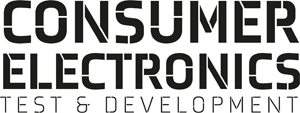Nan Ya Plastics, which also manufactures electronics materials including LCD displays, obtained the green benchmark after TÜV Rheinland verified 13 of its products.
The verification of the ISO 14067 product carbon footprint standard was conducted with the Green Energy and Environment Research Laboratories (GEL) at the Industrial Technology Research Institute (ITRI).
As part of the audit, every phase from raw materials, manufacturing and transportation processes, to end products had to be thoroughly examined, TÜV Rheinland said.
The full audit program was “very complex and challenging to coordinate, as it spanned plants, business units, and upstream/downstream products,” the testing and certification company said in a statement.
Following the audit, Nan Ya said it has been actively assisting the Taiwanese Ministry of Environment in formulating Product Category Rules (PCR) for product carbon footprints.
PCR will become the key standard used by the Ministry of Environment when reviewing applications for product carbon footprint labeling from the plastics industry.
Nan Ya said it has adopted four main carbon reduction strategies to realize its carbon reduction targets - low-carbon energy transformation, energy-efficient and low-carbon circular economy, increase of renewable energy usage, and application of carbon capture technology.
By following these strategies, Nan Ya said it hopes to reduce the carbon content of products and increase their recyclability through cross-plant integration of resources and material homogeneity in design.
“The results from the latest carbon footprint inventory for 13 raw materials conducted simultaneously by Nan Ya will not only serve as a guide for further improvements in product carbon reduction in the future but also inspire internal dialog and set a benchmark for the rest of the industry,” TÜV Rheinland said.

